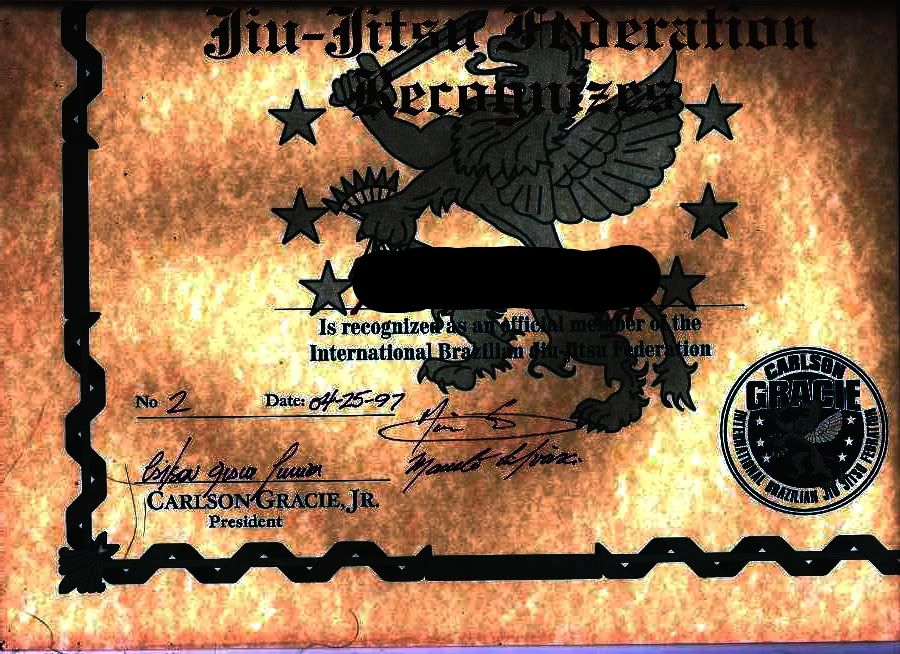It's that time of year again, and stories about the IBJJF and it's various shortcomings are flying fast and furious. Before you can understand these kinds of problems, it's necessary to understand how the IBJJF came to be, and why a private corporation masquerading as the World Governing Body of a sport is bound to lead to conflict of interest and the appearance of impropriety. This is a little long, and will come in parts.
Primer on the Organizational History of Jiu-Jitsu in Brazil (pt 1)
In order to understand the origin of the IBJJF and it’s policies, it is necessary (Really) to understand a goodly portion of the history of Professional Jiu-Jitsu in Brazil. I wish there was an easier way, but there is not. That said, it is a fascinating story with it’s own rewards. I think it is safe to say that when you have finished reading this article, you will know more about the history of Jiu-Jitsu in Brazil, and the IBJJF in particular, than the vast majority of people involved in the US sport scene. I will try to keep this interesting and painless.
In the 1920’s and 1930’s there were several active professional Jiu-Jitsu fighters teaching in Brazil; among these were Geo Omori, Takeo Yano, and of course Maeda and the Gracies. Professional Jiu-Jitsu, like all fighting sports belonged to a single Confederação (Confederação Brasileira de Pugilismo) and its respective federações (Federação Carioca de Pugilismo, Federação Paulista de Pugilismo, Federação Bahiana de Pugilismo and so forth, for each state). This system of Federations under a Confederation, analogous to the Association of Boxing Commissions, controlled all fighting sports in Brazil (boxing, wrestling, capoeira, jiu-jitsu, judo, karate etc.), and regulated Jiu-jitsu matches between professionals, Japanese and non-Japanese; Maeda students and non-Maeda students, were often held in the prelims of vale-tudo cards.
Initially, the Gracies, Carlos and Helio in particular, were not keen on having a sportive Confederation or Federation system because they had just a single academy (in the 1950's and 1960's, the famous Academia Gracie at Av. Rio Branco, 171, in Rio's financial center), and they strictly forbid their students to teach elsewhere until the 1960's. With most of the Rio-based players under one roof, inter-school competition was uncommon, a few contests with the Fadda Academy being the notable exception. At this point, a competition circuit was not really a priority.
In 1965 Carlson united with rival Ivan Gomes and his financial backer, and opened the first splinter school, at Rua Toneleiros, Copacabana. The new Academy failed a year later, and Carlson returned to work with his uncle Helio, at Academia Gracie. In 1968, however, Carlson made a considerable amount of money fighting undefeated Vale Tudo legend Euclides Pereira, in Salvador, Bahia. Although Carlos was defeated (decision), and Pereira’s manager saw an opportunity, and diverted part of his fighter’s purse to Carlson for the purpose of opening an independent Academy in Rio (Pereira was going to open his own school in the north-east). Carlson opened his Academy and was now in direct competition with Carlos and Helio's Academia Gracie . Rolls Gracie acted as a link between Carlson's school and Helio's school, and the competition between the two academies, and between Carlson's and Roll's students was considerable.
At this point the flood gates opened and many of the Gracie’s students began opening schools of their own. Jaildo Gomes sold his school to Helio Gracie student (and UFC I referee) Helio Vígio. Armando Wriedt opened a school, as did João Alberto Barreto, with his brother, Álvaro.
Suddenly, with competing academies all over the Rio area, a Federation was needed. The Gracies set to work using their considerable influence with the political class to free Jiu-Jitsu from the Pugilismo system, no easy task, as the system was controlled by influential people.
The Rio de Janeiro Federation was formed under the name Federação de Jiu-Jitsu do Estado do Rio de Janeiro (Jiu-Jitsu Federation of the State of Rio de Janeiro), controlled by Carlos, Helio (as Technical Director), and certain elder students such as João Alberto Barreto who was instrumental in formulating the curriculum and competition rules. In addition to defininy the sportive aspect, the new federation was created to be the official certifying entity for the Gracie's system of Jiu-Jitsu, controlling all teaching certification, as well as all promotions to the rank of black belt and above; a function it retains to this day. This is where you will find the rank registration for Carlos Sr, Carlos Jr, Helio, Oswaldo, Rorion, Carlson, and even the younger generation (Kyra, Ryan, etc.)
(cont.)


